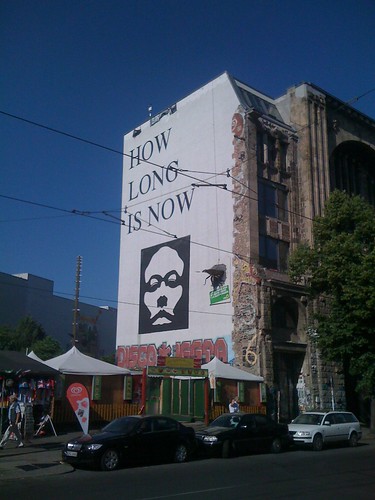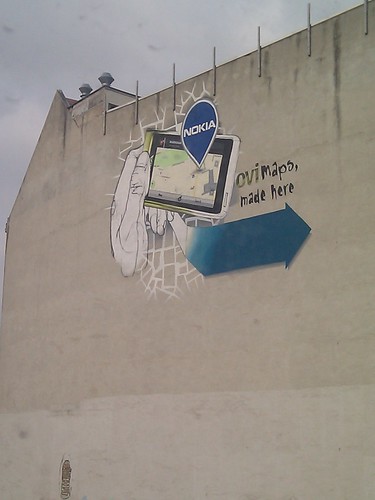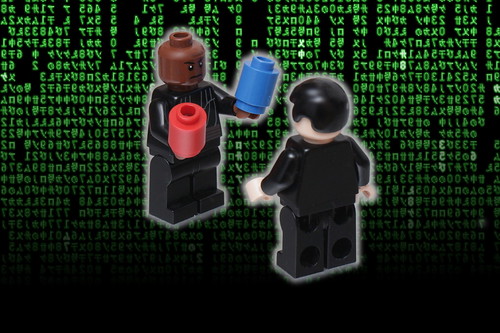Berlin, Graffiti and Maps
Gary Gale
Like most cities these days, there's a lot of graffiti in Berlin. Some of it is just the mindless repetitive tagging where someone feels the need to display his or her tag over as much surface area as possible. But some of it aspires to art, especially the large displays found on the sides of buildings and high up on walls. A great example of this is the massive question (or maybe it's a statement) of How Long Is Now, found on the side of the Tacheles on Oranienburgerstraße, complete with a giant cockroach emerging from the wall.

This grand painting style, part graffiti, part mural, part art seems to be iconic to a lot of the Mitte area of what used to be East Berlin. With this in mind, it's good to see that Nokia has decided to join in with this peculiarly Berlin trait with its own contribution, telling visitors walking along Invalidenstraße towards Nordbahnhof precisely what goes on in the Nokia Gate5 offices ... Ovi Maps, made here.






